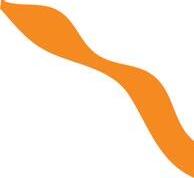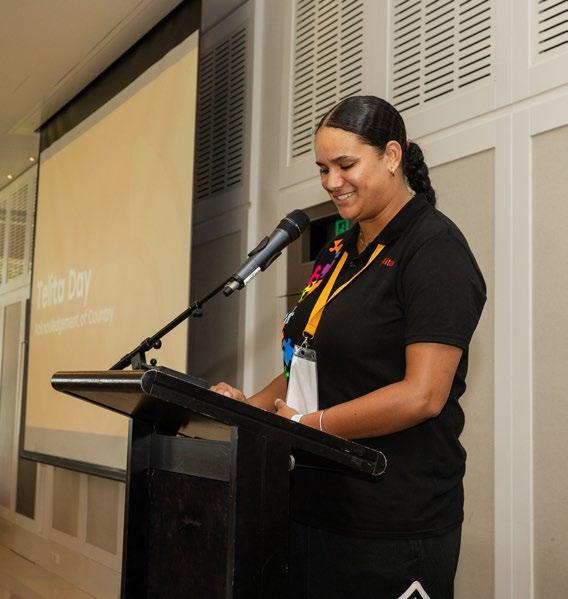Statement from CEO of Reconciliation Australia Message from CEO of Queensland Country Bank


Reconciliation Australia welcomes Queensland Country Bank to the Reconciliation Action Plan (RAP) program with the formal endorsement of its inaugural Reflect RAP.



Queensland Country Bank joins a network of more than 2,200 corporate, government, and not-forprofit organisations that have made a formal commitment to reconciliation through the RAP program.
Since 2006, RAPs have provided a framework for organisations to leverage their structures and diverse spheres of influence to support the national reconciliation movement. The program’s potential for impact is greater than ever, with close to 3 million people now working or studying in an organisation with a RAP.
The four RAP types — Reflect, Innovate, Stretch and Elevate — allow RAP partners to continuously develop and strengthen reconciliation commitments in new ways. This Reflect RAP will lay the foundations, priming the workplace for future RAPs and reconciliation initiatives.
The RAP program’s strength is its framework of relationships, respect, and opportunities, allowing an organisation to strategically set its reconciliation commitments in line with its own business objectives, for the most effective outcomes.
These outcomes contribute towards the five dimensions of reconciliation: race relations; equality and equity; institutional integrity; unity; and historical acceptance.
It is critical to not only uphold all five dimensions of reconciliation, but also increase awareness of Aboriginal and Torres Strait Islander cultures, histories, knowledge, and leadership across all sectors of Australian society.
This Reflect RAP enables Queensland Country Bank to deepen its understanding of its sphere of influence and the unique contribution it can make to lead progress across the five dimensions. Getting these first steps right will ensure the sustainability of future RAPs and reconciliation initiatives, and provide meaningful impact toward Australia’s reconciliation journey. Congratulations Queensland Country Bank, welcome to the RAP program, and I look forward to following your reconciliation journey in the years to come.
Karen Mundine Chief Executive Officer Reconciliation Australia

On behalf of our team at Queensland Country Bank, am delighted to be launching our first Reconciliation Action Plan (RAP). Our teams are deeply committed to improving financial outcomes for Queenslanders and being a values-based, member-owned organisation means that giving back to our communities is embedded into the soul of our people.
We recognise that many of the communities, particularly in North Queensland, have higher populations of First Nations peoples and therefore we have a greater opportunity to create meaningful relationships and make a positive contribution to national reconciliation. Motivated by this, our Reflect RAP is focused on discovery, education, building relationships and enhancing existing relationships, creating opportunities, and fostering a workplace that acknowledges the significance of true inclusion and sustainability.
While we have long been committed to working with First Nations people in our communities and have had strategic focus on Diversity and Inclusion since 2015, we appreciate we are at the start of our reconciliation journey. We are recognising our responsibility in how to inspire meaningful change internally and more broadly across our communities and are looking forward to working on the practical actions of the RAP. We look forward to sharing our progress and invite you on our journey in pursing Reconciliation with the respect it deserves.
Aaron Newman Chief Executive Officer Queensland Country Bank

4 5 Reflect Reconciliation Action Plan Reflect Reconciliation Action Plan
Our partnerships/ current activities

In 2016 we partnered with the Cowboys Leagues Club and their First Nations Earn Learn Legend program and hired our first Aboriginal Trainee. Since then, we have committed to ensuring we always have an active First Nations Trainee in the business every year and we partner with Foundations and organisations to recruit First Nation Trainees in our local areas. In 2021 we grew this commitment to two a year.

In 2017 we introduced our first Acknowledgement of Country at an all-staff event where 350 people attended. We now deliver an ‘Acknowledgment of Country’ at every Leadership forum, relevant Committee meetings and other large corporate events.
In 2017 we completed our first Diversity and Equality Strategy, which set out the commitment to having a culturally diverse workforce that reflects our communities and a commitment to employ a First Nations trainee across North Queensland.
Our Diversity and Equality Policy was endorsed by the Board in July 2020.
The relationships and mentoring since 2018 from the staff at the Department of Seniors, Disability Services, Aboriginal and Torres Strait Islander Partnerships have been invaluable. Their locally run Townsville Indigenous Networking events have helped connect us with First Nations business people around the local area.
In early 2022 we invited the Department to educate staff on the Aboriginal and Torres Strait Islander cultural histories. Around ten leaders from the local area attended and opened them up to new learnings and opening up conversations.
This year, we have formed relationships with two not-for-profit foundations, Clontarf Foundation and Stars Foundation. Both are dedicated to improving young Aboriginal and Torres Strait Islander men’s education, confidence, and life skills (Clontarf Foundation) and women (Stars Foundation). Our relationship with these two groups has been mutually beneficial as we:
• Delivered three information sessions that discussed financial literacy and recruitment
• Participated in over 15 hours of Community Volunteering
• Engaged two work experience students
• Recruited a full-time trainee.
We are currently working with the Northern Australian Infrastructure Facility (NAIF) to partner with them in financing loans for organisations which has a public benefit, drives economic and population growth and Indigenous involvement in northern Australia. As part of this we will create an Indigenous Engagement Strategy to set objectives around participation, procurement and employment that reflect the First Nations population in the region.
2020 Diversity and Equality Policy

2022 Sponsored Indigenous girls soccer team Tiddas United

2022
Delivered financial literacy and recruitment sessions to First Nations students
Formed relationships with two not-for-profit foundations, Clontarf Foundation and Stars Foundation





2016 First Nations traineeship program began 2017 Our first Acknowledgement of Country 2017 First Diversity and Equality Strategy 2018 Started relationships and mentoring 2022
11 Reflect Reconciliation Action Plan 10 Reflect Reconciliation Action Plan
RELATIONSHIPS
ACTION DELIVERABLE TIMELINE RESPONSIBILITY
1. Establish and strengthen mutually beneficial relationships with Aboriginal and Torres Strait Islander stakeholders and organisations.
Identify Aboriginal and Torres Strait Islander stakeholders and organisations within our local area or sphere of influence.
Research best practice and principles that support partnerships with Aboriginal and Torres Strait Islander stakeholders and organisations.
Maintain and strengthen our ongoing relationships with Clontarf Foundation and Stars Foundation.
August 2023 Head of Human Resources
June 2023 Head of Human Resources
2. Build relationships through celebrating National Reconciliation Week (NRW).
Circulate Reconciliation Australia’s NRW resources and reconciliation materials to our staff.



Ensure RAP Working Group members to participate in an external NRW event.

Encourage and support staff and senior leaders to participate in at least one external event to recognise and celebrate NRW.
July 2023 Head of Human Resources
May 2023 Head of Engagement
27 May- 3 June, 2023 Head of Human Resources


27 May- 3 June, 2023 Executive Manager People and Culture
3. Promote reconciliation through our sphere of influence.
Communicate our commitment to reconciliation to all staff.
Communicate our commitment to reconciliation publicly via our website and social media.
Identify external stakeholders that our organisation can engage with on our reconciliation journey.
Identify RAP and other like-minded organisations that we could approach to collaborate with on our reconciliation journey.
April 2023 CEO
June 2023 Marketing Manager
June 2023 Head of Human Resources
July 2023 Head of Human Resources
4. Promote positive race relations through antidiscrimination strategies.
Research best practice and policies in areas of race relations and antidiscrimination.
Conduct a review of HR policies and procedures to identify existing antidiscrimination provisions, and future needs.

September 2023 Head of Human Resources
October 2023 Head of Human Resources
5. Increase understanding, value and recognition of Aboriginal and Torres Strait Islander cultures, histories, knowledge and rights through cultural learning
6. Demonstrate respect to Aboriginal and Torres Strait Islander peoples by observing cultural protocols.
RELATIONSHIPS
RESPECT
ACTION DELIVERABLE TIMELINE RESPONSIBILITY
Develop a business case for increasing understanding, value and recognition of Aboriginal and Torres Strait Islander cultures, histories, knowledge and rights within our organisation.




Investigate cultural learning opportunities for staff.
Conduct a review of cultural learning needs within our organisation.




Develop an understanding of the local Traditional Owners or Custodians of the lands and waters within our organisation’s operational area.
Increase staff’s understanding of the purpose and significance behind cultural protocols, including Acknowledgement of Country and Welcome to Country protocols.
Encourage and support staff to include an Acknowledgement of Country at the commencement of important meetings.
July 2023 Head of Human Resources and Head of Capability
November 2023 Head of Human Resources and Head of Capability
September 2023 Head of Capability
February 2023 Sustainability Manager

July 2023 Head of Human Resources and Head of Capability
7. Build respect for Aboriginal and Torres Strait Islander cultures and histories by celebrating NAIDOC Week.
Raise awareness and share information amongst our staff about the meaning of NAIDOC Week.
Introduce our staff to NAIDOC Week by promoting external events in our local area.
Ensure RAP Working Group members participate in an external NAIDOC Week event.
August 2023 Head of Human Resources and CEO
June 2023 Head of Human Resources
June 2023 Head of Human Resources
July 2023 Head of Human Resources with RAP Working Group
12 Reflect Reconciliation Action Plan Reflect Reconciliation Action Plan
RELATIONSHIPS
ACTION DELIVERABLE TIMELINE RESPONSIBILITY
8. Improve employment outcomes by increasing Aboriginal and Torres Strait Islander recruitment, retention, and professional development.
9. Increase Aboriginal and Torres Strait Islander supplier diversity to support improved economic and social outcomes.
GOVERNANCE OPPORTUNITIES
Develop a business case or workforce plan for increasing Aboriginal and Torres Strait Islander employment within our organisation.
Continue our First Nations Traineeship program with a focus to retain trainees into full time employment and create career pathways.
Build understanding of current Aboriginal and Torres Strait Islander staffing to inform future employment and professional development opportunities.
Develop a business case for procurement from Aboriginal and Torres Strait Islander owned businesses.
May 2023 Head of Human Resources
August 2023 Head of Human Resources
February 2023 Head of Human Resources
August 2023
Investigate Supply Nation membership. July 2023
Sustainability Manager and Executive Manager Corporate Services
Sustainability Manager and Executive Manager Corporate Services
RELATIONSHIPS
ACTION DELIVERABLE TIMELINE RESPONSIBILITY
10. Establish and maintain an effective RAP Working Group (RWG) to drive governance of the RAP.
Maintain a RWG to govern RAP implementation.
June 2023 Head of Human Resources
11. Provide appropriate support for effective implementation of RAP commitments.
Draft a Terms of Reference for the RWG.
Maintain Aboriginal and Torres Strait Islander representation on the RWG.
Define resource needs for RAP implementation.
Engage senior leaders in the delivery of RAP commitments.
Maintain a senior leader to champion our RAP internally.
Define appropriate systems and capability to track, measure and report on RAP commitments.
April 2023 Head of Human Resources
September 2024 Head of Human Resources
June 2023 Head of Human Resources
June 2023 Executive Manager People and Culture
May 2023 Executive Manager People and Culture
August 2023 Executive Manager of People and Culture and Sustainability Manager
12. Build accountability and transparency through reporting RAP achievements, challenges and learnings both internally and externally.
Contact Reconciliation Australia to verify that our primary and secondary contact details are up to date, to ensure we do not miss out on important RAP correspondence.
Contact Reconciliation Australia to request our unique link, to access the online RAP Impact Measurement Questionnaire.

Complete and submit the annual RAP Impact Measurement Questionnaire to Reconciliation Australia.
June annually Head of Human Resources
1 August annually Head of Human Resources
13. Continue our reconciliation journey by developing our next RAP.
Register via Reconciliation Australia’s website to begin developing our next RAP.
30 September, annually Head of Human Resources
February 2024 Head of Human Resources
14 Reflect Reconciliation Action Plan 15 Reflect Reconciliation Action Plan






































